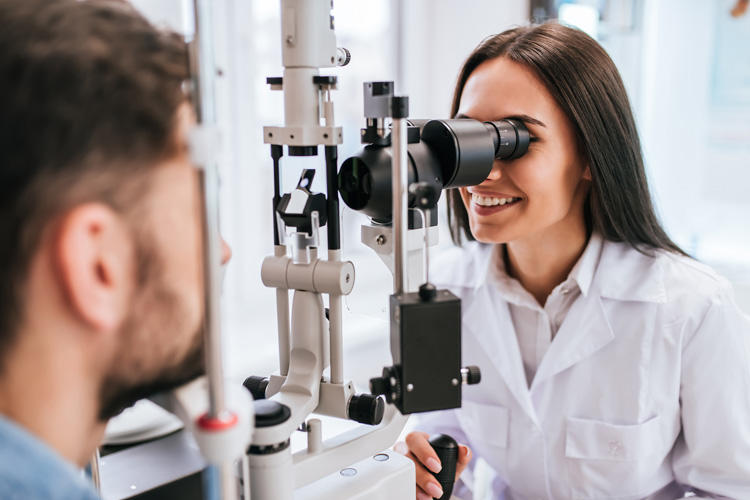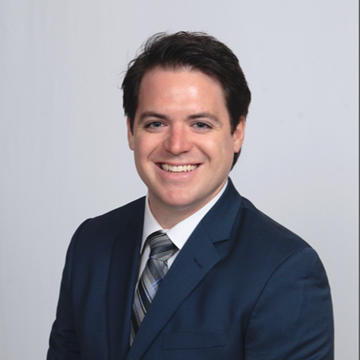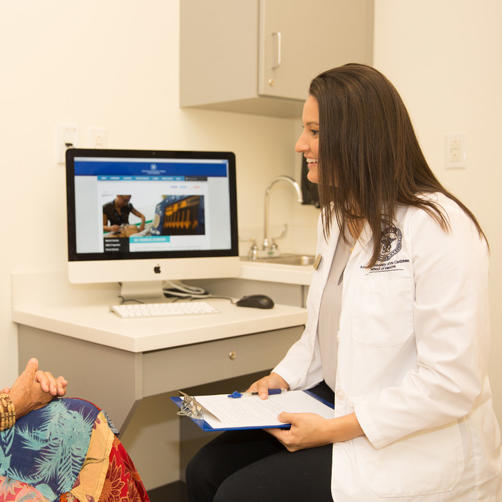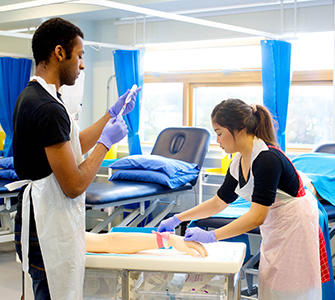If you have decided you want to be a physician, and you’re considering medical specialties down the road, take a look at this one: ophthalmology. Ophthalmologists are medical doctors who perform medical and surgical treatments for eye conditions. Ophthalmology is one of 14 surgical specialties recognized by the American College of Surgeons.
WHAT DO OPHTHALMOLOGISTS DO?
Ophthalmologists are “eye MD’s” as well as ophthalmologic surgeons. Ophthalmologists treat all diseases and disorders of the eyes. They prescribe eyeglasses and contacts and perform laser-assisted in situ keratomileusis (LASIK), small incision lenticule extraction (SMILE), or photorefractive keratectomy (PRK) surgeries to correct vision problems. Ophthalmologists also operate to treat such conditions as cataracts, diabetic retinopathy, glaucoma, macular degeneration, or strabismus (cross-eyes). Many ophthalmologists also do research on eye diseases and vision disorders.
HOW TO BECOME AN OPHTHALMOLOGIST
To be an ophthalmologist, you must first become a physician by graduating from an accredited medical school—such as American University of the Caribbean School of Medicine* (AUC). The path to a medical degree at AUC, which is located on the Caribbean island of St. Maarten, is the same as at United States-based schools: two years of medical science classes and two years of hands-on clinical training. For AUC students, the medical sciences curriculum is completed at the St. Maarten campus; the clinical training can be completed at affiliated teaching hospitals in the United States or in the United Kingdom.
AUC also partners with the University of Central Lancashire (UCLan) in the United Kingdom for a “UK-track” option. The first two years at UCLan focus on studying the medical sciences. Upon completion, students receive a Post Graduate Diploma in International Medical Sciences, which AUC recognizes as equivalent to its own medical sciences curriculum. During the final two years, students can then complete clinical training across AUC’s network of affiliated teaching hospitals.
During clinical training, AUC students complete core rotations in internal medicine, surgery, pediatrics, family medicine, obstetrics/ gynecology, and psychiatry. Each individual student, then, selects from among dozens of specialty elective clerkships to fulfill their remaining clinical requirements.
During the fourth and final year of medical school, students prepare for the next phase of their medical education: residency. At AUC, the Office of Career Advisement (OCA) can help students determine which residency specialty—such as ophthalmology—suits them best. The OCA then helps students negotiate the National Resident Matching Program® (NRMP®)—a placement system which medical students who wish to become licensed in the United States use to “match” with a medical residency in the United States. Residencies are required to become a licensed physician, and they last from three to eight years. An ophthalmology residency, which begins with a preliminary internship year, is four years.
In 2021, AUC had a first-time residency attainment rate of 92 percent for 2020-2021 graduates—on par with the overall match rate (92.8 percent) for medical schools in the United States. In recent years, AUC MD’s have matched with ophthalmology residencies at both Mt. Sinai Hospital and Nassau University Medical Center in New York.
After the successful completion of ophthalmology training, doctors may be certified by the American Board of Ophthalmology, and they may apply for membership in the American Academy of Ophthalmology. An additional year or two of fellowship training is need to subspecialize in such areas as:
- Anterior Segment Surgery
- Cataracts and Refractive Surgery
- Cornea and External Disease
- Glaucoma
- Neuro-Ophthalmology
- Ocular Oncology
- Ophthalmic Pathology
- Ophthalmic Plastic Surgery
- Pediatric Ophthalmology
- Vitreoretinal Diseases
MEET AN OPHTHALMOLOGIST
Carson Schell, MD, a 2018 AUC graduate, is a fourth year ophthalmology resident at Nassau University Medical Center in New York. In July 2022, he will begin a fellowship in orbit and oculofacial plastic and reconstructive surgery at the University of Calgary.
Q: Why did you choose ophthalmology?
A: After undergoing laser refractive surgery in college, I was amazed at how someone could completely restore my vision in a single visit. The procedure opened my eyes (both literally and figuratively) to the transformative power of ophthalmology, and inspired me to become a physician. While at AUC, I was drawn toward surgery in anatomy lab both on the island and during clinical rotations. Ophthalmology offers a unique combination of surgery and other treatments with exciting new technologies. The field also lends itself to specialization with fellowships in cornea, glaucoma, retina, uveitis, pediatrics, neuro-ophthalmology, and oculoplastics. I am excited to be furthering my training in orbit and oculofacial plastic and reconstructive surgery.
Q: What’s the most rewarding part of your job?
A: The most rewarding part of my job is offering surgery to patients that can instantly improve or resolve the symptoms that brought them to the clinic. There is immediate gratification after removing a cataract, performing LASIK/SMILE, or restoring eyelids to the proper position.
Q: Any advice to medical students considering ophthalmology?
A: When applying for residency, ophthalmology is considered a very competitive specialty. I encourage students to commit to their studies and ace the USMLE exams. The amount of research in ophthalmology is astounding and I would impress upon students to seek out mentors, as well as create your own research projects to contribute to the literature. The ophthalmology community is small, so networking via research, clinical rotations, and attending conferences is a great step toward meeting future colleagues. Be persistent and confident in your training, it takes courage to study abroad and the journey is a testament to your dedication to medicine!
If you want to become a doctor, and a career as an ophthalmologist appeals to you, learn more about the AUC MD Program and investigate the Office of Career Advisement. When you’re ready, take the next step on your path to a specialization in ophthalmology: apply for admission to American University of the Caribbean School of Medicine.
Related Resources:
- The Three Types of Eye Doctors
- Alumni Spotlight: Ophthalmologist Valerie Garden
- Aaron Brown, MD ‘20, Earns Top Ophthalmology Residency
*American University of the Caribbean School of Medicine is accredited by the Accreditation Commission on Colleges of Medicine (ACCM, www.accredmed.org), which is the accreditor used by the country of St. Maarten.






